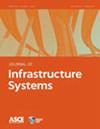基础设施脆弱性对发展中国家外国基础设施投资政治风险的中介作用:来自巴西和中国的见解
IF 2.2
3区 工程技术
Q2 ENGINEERING, CIVIL
引用次数: 0
摘要
外国基础设施投资对发展中国家的经济增长至关重要。然而,发展中国家容易面临更高水平的政治风险,这是这种投资的不利因素。政治风险的性质已得到充分记录,包括腐败、法律保护不足、监管程序不透明以及政府不稳定,容易出现项目支持的不稳定变化等因素。即便如此,政治风险对境外投资的影响并不仅仅来自环境因素,还来自基础设施交付系统的内部属性;也就是说,并不是所有的项目都会受到相同程度的政治气候影响。虽然外部政治风险环境已被广泛探索,但内部脆弱性尚未得到很好的理解。本研究确定了外国基础设施脆弱性对发展中国家境外机构投资的影响及其抵消政治风险对发展中国家境外机构投资不利影响的中介能力。它利用了中国和巴西2006年至2019年的数据库,作为发展中国家的范例。采用偏最小二乘结构方程模型(PLS-SEM)方法对数据库进行分析,确定现有系统脆弱性因素:系统的政治风险暴露、系统应对政治风险的能力以及东道国与母国之间的关系。研究结果证实,在其他条件相同的情况下,当基础设施项目风险敞口较高时,境外投资流动受到阻碍。此外,在有能力调解政治风险的系统中,促进外国投资机构的参与,同时也减轻了这种风险对交付系统的负面影响。这些发现为脆弱性理论领域的知识体系提供了补充,同时为跨国投资者提供了一条实用的政治风险管理途径。本文章由计算机程序翻译,如有差异,请以英文原文为准。
The Mediating Role of Infrastructure Vulnerability on the Political Risk of Foreign Infrastructure Investment in Developing Countries: Insights from Brazil and China
Foreign infrastructure investment (FII) is essential to the economic growth of developing countries. However, developing countries are prone to higher levels of political risk, which act as detractors to such investment. The nature of political risk has been well documented and includes such factors as corruption, inadequate legal protections, opaque regulatory processes, and unstable governments prone to volatile shifts in project support. Even so, the impact of political risk on FII does not arise from environmental factors alone, but also emanates from the internal attributes of the infrastructure delivery system; which is to say not all projects are impacted to the same extent by a given political climate. Although the external political risk environment has been extensively explored, the internal vulnerabilities are not well understood. This study identifies the impacts of foreign infrastructure vulnerability on FII and its mediating capacity in offsetting the adverse effects of political risk on FII in developing countries. It draws on a database of China and Brazil from 2006 to 2019, as exemplars of developing nations. A partial least-square structural equation model (PLS-SEM) method is employed in analyzing the database against existing system vulnerability factors as identified: political risk exposure of the system, system’s capability of dealing with political risk, and the relationship between host and home countries. The findings confirm that, ceteris paribus, FII flows are hindered when infrastructure projects carry higher risk exposure. Moreover, where systems possess the capacity to mediate political risk, FII participation is facilitated, while also diluting the negative impacts of that risk on the delivery system. These findings add to the body of knowledge in the domain of vulnerability theory, while offering a practical political risk management pathway for multination investors.
求助全文
通过发布文献求助,成功后即可免费获取论文全文。
去求助
来源期刊

Journal of Infrastructure Systems
ENGINEERING, CIVIL-
CiteScore
6.10
自引率
6.10%
发文量
68
审稿时长
6 months
期刊介绍:
The Journal of Infrastructure Systems publishes cross-disciplinary papers about managing, sustaining, enhancing, and transforming civil infrastructure systems. Papers are expected to contribute new knowledge through development, application, or implementation of innovative methodologies or technologies.
Civil infrastructure systems enable thriving societies and healthy ecosystems. Civil infrastructure systems support transportation; energy production and distribution; water resources management; waste management; civic facilities in urban and rural communities; communications; sustainable resources development; and environmental protection. These physical, social, ecological, economic, and technological systems are complex and interrelated.
Increasingly, inter- and multidisciplinary expertise is needed not only to design and build these systems, but to manage, sustain, enhance, and transform them as well. Typical management problems are fraught with uncertain information, multiple and conflicting objectives, and sometimes numerous and conflicting constituencies. Solutions are both complex and cross-disciplinary in nature and require the thoughtful integration of sound engineering judgment, economic flexibility, social equity, and institutional forbearance.
Papers considered for publication must contain a well-defined engineering component and articulate a clear contribution to the art and science related to infrastructure systems. Potential authors should consult the ASCE Author Guide for acceptable paper formats and article types.
 求助内容:
求助内容: 应助结果提醒方式:
应助结果提醒方式:


